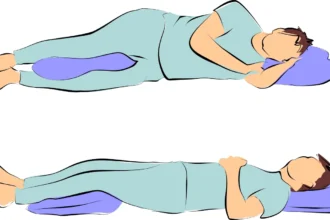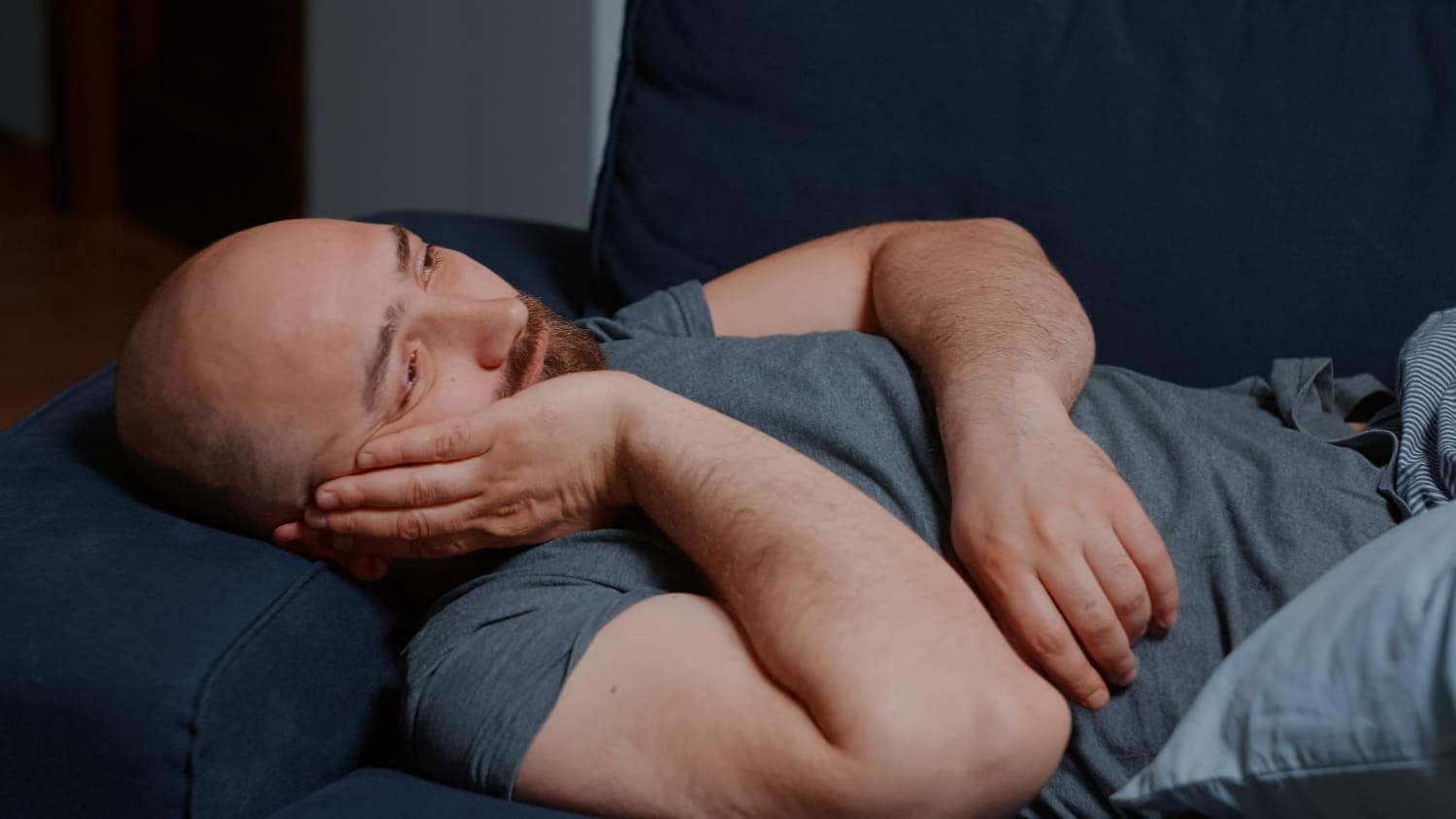Knowing the best way to sleep with occipital neuralgia to mitigate the headache as much as possible is essential, as sleep is a fundamental component of health. Dealing with discomfort while trying to sleep, particularly from something as challenging as occipital neuralgia, can indeed be trying. This affliction is a nerve inflammation-induced headache, amplifying pain with the slightest pressure on the nerves. The position one sleeps in is crucial to lessen discomfort from neck motion and resultant head pain.
Best Way to Sleep with Occipital Neuralgia and Maintaining Wellness: Deciphering Occipital Neuralgia
According to the National Institute of Neurological Disorders and Stroke, occipital neuralgia is a specific type of headache. It manifests as pulsating, stabbing, or electric-shock-like pain in the back of your head, upper neck region, and behind the ears, often more pronounced on one side of the head. It roots from the greater and lesser occipital nerves that arise from the cervical spine section or the neck, extending through the muscles on either side of the head, and penetrating the scalp. The inflammation or irritation of these nerves triggers the pain associated with this condition. Despite its rarity, its detection remains a challenge as migraine symptoms often overshadow it. Migraines targeting one side or the back of the head can inflame the occipital nerve. Thus, it might lead to misdiagnosis of a migraine inciting inflammation in the great occipital nerve instead of acknowledging the presence of occipital neuralgia.
How Should You Sleep with Occipital Neuralgia: The Complex Relationship Between Occipital Neuralgia and Sleep
Occipital neuralgia complicates sleep due to a multitude of reasons. The Occipital Neuralgia Foundation enumerates a host of symptoms impacting sleep quality, including pain at the base of the skull, and neck, or that radiating to the scalp and possibly the forehead. The pain, whether constant or intermittent, sensitizes the scalp, leading to discomfort on the touch. Another prominent symptom includes pain above the eyebrows. Any injury, irritation, or disease that pinches the nerve root, or constricted neck muscles entangling the occipital nerve can exacerbate the neck’s pain. Consequently, individuals lacking quality sleep are prone to daytime lethargy, and this sleep deficiency can intensify pain. Also, the neck’s range of motion is limited due to pain and muscle rigidity, making the tenderness and discomfort in the neck and scalp severe challenges to a good night’s sleep. However, a certain sleep position is suggested to alleviate these issues.
The Ideal Sleep Position for Occipital Neuralgia

Generally, the best sleeping position for those with occipital neuralgia is lying flat on their back. This avoids undue pressure on the nerves. The best way to sleep with occipital neuralgia encompasses:
- Lying supine or on your back.
- Selecting a pillow that offers neck support, aligns your head and body, and minimizes movement.
- Evading neck bending to reduce nerve pressure.
- Best practices for sleeping with occipital neuralgia.
However, if you cannot lie supine, consider sleeping on your side still ensuring your neck is adequately supported and your head and spine aligned.
Lifestyle Modifications for Occipital Neuralgia
Along with implementing conducive sleeping positions, integrating several lifestyle changes can prove beneficial. For instance, caffeine and occipital neuralgia don’t synergize well. Regular caffeine consumption can constrict the blood vessels around the brain, leading to caffeine dependency. Cessation of caffeine intake in habitual coffee drinkers can trigger severe headaches, even more so in individuals with occipital neuralgia. Therefore, abstaining from caffeine is advisable. Another recommended shift in lifestyle involves avoiding refined sugar and incorporating fresh fruits and vegetables into your diet. Gentle neck exercises can also help relax tight muscles.
Seeking Medical Help to Know How Should You Sleep with Occipital Neuralgia
While detecting occipital neuralgia can be arduous, consulting a pain specialist is vital to rule out other medical causes of the pain. Such a physician can suggest several measures, such as over-the-counter medications or alternative treatments like pulsed radiofrequency and massage if the occipital neuralgia becomes unbearable.
Navigating the Challenge of Sleep with Occipital Neuralgia
Occipital Neuralgia distinguishes itself as one of the lesser-known varieties of headaches. Its unique characteristic is that it is deemed as a primary headache rather than a secondary one, resulting from inflammation, pinching, or other forms of irritation to the Occipital Nerve situated at the back of the neck. Interestingly, there are three kinds of Occipital Nerves: The Greater, The Lesser, and the Third. As per Science Direct, around 90% of Occipital Neuralgia cases involve the Greater Occipital Nerve, approximately 10% involve the Lesser Occipital Nerve, and a negligible few involve the Third. Despite its rarity, it’s significantly painful and notably hampers people’s ability to sleep with occipital neuralgia when the condition afflicts them.
Strategies to Follow
Several strategies may contribute to improving your sleep conditions.
Utilizing a Specialized Chiropractic Pillow for Occipital Neuralgia
Occipital Neuralgia results from the irritation or inflammation of the Occipital Nerve, located near the base of your skull. Using a regular pillow likely exerts additional pressure on this nerve when you recline, thereby leading to greater discomfort and hindering your ability to find the best way to sleep with occipital neuralgia. To tackle this, many manufacturers have introduced specialized pillows specifically for those dealing with occipital neuralgia. Look for one that provides a depression for your head and a support contour for your neck to alleviate the pressure during sleep while maintaining proper neck and spine alignment. A chiropractor might be able to provide in-depth guidance regarding these specialized pillows.
Deploying Chiropractic Massage as a Remedy for Occipital Neuralgia
Chiropractic massage, supervised by a professional chiropractor, has shown considerable promise in relieving headaches, including those caused by Occipital Neuralgia (ON). Often, ON can be linked to tight neck muscles that impede one of the Occipital Nerves. By reducing the tension in these muscles, a regular chiropractic massage schedule can help mitigate neck tightness, thereby alleviating pain and aiding better sleep. For residents of Anchorage, Alaska, seeking a reputable local chiropractic office offering massage therapy, feel free to contact Better Health Alaska at (907) 346-5255.
Addressing Occipital Neuralgia with Chiropractic Care
While the exact mechanisms of how chiropractic care aids headache relief remain somewhat elusive, it’s generally accepted that neck adjustments help in realigning vertebrae. This, in turn, eases tension in the nearby muscles, including those entrapping the Occipital Nerves. Introducing chiropractic care along with chiropractic massage into your regimen might reduce your ON-related pain, thereby providing better sleep in the long run.
Monitor Your Caffeine Consumption
While navigating through the best way to sleep with occipital neuralgia, being vigilant with your caffeine intake is crucial. Limiting your caffeine consumption several hours before bed ensures it’s out of your system when it’s time to sleep, enhancing your chances of restful sleep.
Incorporate Yoga into Your Routine
Yoga, an age-old discipline focusing on body poses and stretches, can strengthen muscles and alleviate tension. Coupled with the care offered by chiropractors, yoga tends to reduce stress and relieve tight muscles, like those in the back of the neck. However, it’s advisable to seek guidance from a qualified yoga instructor for a medically-driven purpose, like ON-related issues.
Engage in Regular Exercise
Integrating a regular exercise program into your lifestyle can significantly reduce tension and thereby increase your chances of falling asleep faster and sleeping more soundly. The general recommendation is to engage in some form of exercise at least thrice a week.
Take a Hot Shower Before Bedtime
A hot shower before bedtime not only reduces tension but, once established as a regular habit, signals your body that it’s bedtime. You can incorporate a shower as part of your nightly “wind-down” routine.
Apply Hot and Cold Compresses
Occipital Neuralgia can often be traced back to inflamed muscles. Using the cold, followed by hot compresses, can help combat this inflammation, relieving pressure on your Occipital Nerve, and consequently, the pain to be the best way to sleep with occipital neuralgia.
Experiment with An Elimination Diet
In some instances to know how should you sleep with occipital neuralgia allergies to certain foods can trigger conditions like ON. If suspected, it’s best to avoid allergens that cause discomfort. An elimination diet, where you forego one potential allergen at a time, can uncover if specific food items like cheese, chocolate, citrus fruit, coffee, or alcohol are causing your issues.
Amplified Occipital Neuralgia Symptoms at Night: Best Ways to Sleep
Understanding whether Occipital Neuralgia intensifies during the night could be elusive due to the rarity and the unique nuances of the condition. However, it is broadly observed that many individuals experience amplified symptoms of the disorder during nighttime hours. The best way to sleep with Occipital Neuralgia may not be clearly defined but could be influenced by various factors, ranging from the type of pillow used to accumulated tension from daily activities. The chronic pain incurred by Occipital Neuralgia could make lying down a daunting task, leading to disrupted sleep patterns for many sufferers.
Can a Specialty Pillow Mitigate Occipital Neuralgia Sleep Distress?
The link between the contact point of a pillow and your Occipital Nerve is often responsible for accentuated pain and discomfort, particularly when seeking the best way to sleep with Occipital Neuralgia. Fortunately, the current pillow market offers several specialty designs. A pillow equipped with a cradle for your head and bolster to support your neck could help alleviate nocturnal pressures and maintain proper alignment of your neck and spine. Consulting with a chiropractor can provide greater insight into tailoring your pillow choice.
Alleviating Occipital Nerve Tension: Techniques to Explore
The methods for soothing an aggravated nerve are equally applicable to calming your Occipital Nerve. These methodologies primarily encompass:
- Easing muscle tension encompassing the nerve
- Proper skeletal alignment
- Mitigation of muscular inflammation
Is Chiropractic Care an Effectual Answer to Occipital Neuralgia?
While briefly referenced earlier, the assurance of chiropractic care’s effectiveness in treating Occipital Neuralgia requires reinforcement. A scientific case study from 2003 evidences the potential benefits of chiropractic care. Although there’s no uniform guaranteed treatment to know how should you sleep with occipital neuralgia, exhaustively exploring conservative approaches like chiropractic care before progressing to invasive procedures like surgery, is often the best route advised. Remember, chiropractors hold expertise in the musculoskeletal system and can go beyond merely diagnosing the issue.
Final Thoughts on the Best Way to Sleep with Occipital Neuralgia
Facing Occipital Neuralgia, particularly when it’s jeopardizing your sleep, can be challenging. However, you’re not utterly helpless. Seeking professional help, for instance, consulting a chiropractor may be the best way to navigate the sleep difficulties linked with Occipital Neuralgia. The strategies described above could be the start of your path to alleviating the condition and getting to know the best way to sleep with occipital neuralgia.
Read more: Best sleeping position to grow height













